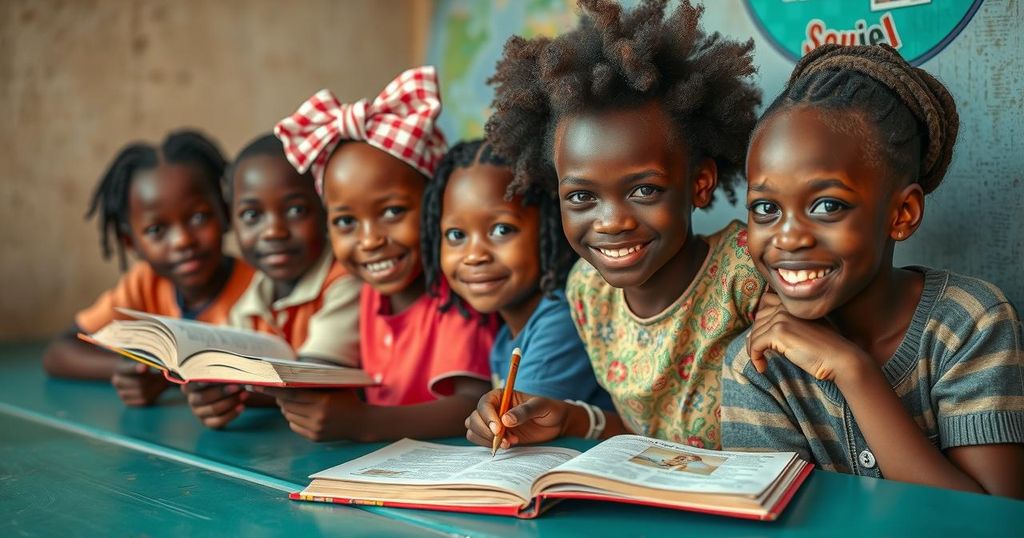In Goma, DR Congo, the Mlimani publishing house is fostering a love of reading among the youth by providing affordable and locally relevant literature. Amidst the challenges of poverty and conflict, this initiative has made strides in making books accessible, enabling discussions around culture and history, thereby empowering young people to connect with their heritage and envision a brighter future.
In Goma, a city located in the eastern Democratic Republic of the Congo (DRC), efforts are being made to revive a culture of reading among young people. Martin Lukongo, who operates a printing shop in the region, has taken concrete steps to provide local access to literature by overcoming significant challenges. For over three decades, Goma has been enveloped in conflict, leading many to view reading as a luxury amidst the hardships prevalent in this impoverished nation.
Despite perceptions that reading is a futile activity, a collective of artists and activists is actively promoting literacy and engagement with books among the youth. The Mlimani publishing house, founded by a group of individuals including Depaul Bakulu, aims to serve as a local source of literature by offering affordable books that resonate with the experiences of Congolese youth. Presently, the collective has published various works, including contributions from prominent figures such as Frantz Fanon and Denis Mukwege.
Mlimani has made strides since its inception by pricing books between $5 and $10, making them significantly more accessible than imported alternatives, which can cost as much as $60. Local readers have shown interest in books that reflect their culture and societal issues. Moreover, the publishing house has established a network to distribute its works across major cities in the DRC, where members engage young readers through discussions and reading sessions. This approach provides a platform for meaningful dialogue and fosters a community of learners eager to delve into their history and heritage.
The initiative has sparked interest in local authorship, prompting the emergence of additional publishing houses and nurturing a cadre of budding writers. As Lukongo noted, “You do not have to send your books elsewhere in order to sell them here,” emphasizing the importance of local publishing efforts. This resurgence of literary activity is cultivating a refreshing atmosphere for intellectual engagement among the youth of Goma, thus fostering a reconnection with their cultural identity that has been historically neglected in educational curriculums.
In summary, the coordinated efforts of the Mlimani collective and various local authors are stimulating a renaissance of reading and writing in Goma, challenging the notion that literary engagement is an unattainable luxury. Such initiatives are critical in empowering young Congolese to explore their past and envision a hopeful future, embodying a potential shift towards greater cultural appreciation and intellectual development.
The Democratic Republic of the Congo is characterized by a rich but tumultuous history, particularly in its eastern regions that have recently been marred by conflict. Despite its potential to be a hub for literary talent, the lack of accessible educational resources and books has severely hampered the youth’s literary engagement. The Mlimani publishing house stands out as a response to these challenges, aiming to create a local publishing ecosystem that addresses the financial and logistical barriers associated with obtaining literature, thereby nurturing a new generation of readers and writers.
Ultimately, the efforts to revitalize reading culture through local publishing in the DRC represent not only a rebirth of literary interest but also a critical endeavor to empower youth through education. Mlimani and similar initiatives demonstrate how community-driven solutions can bridge the accessibility gap in literature, fostering a deeper understanding of cultural identity while also equipping young individuals with the necessary intellectual tools to navigate future challenges. The commitment to producing locally relevant content serves as an essential step toward enriching the Congolese cultural landscape and promoting a sustainable reading habit among the youth.
Original Source: www.france24.com






